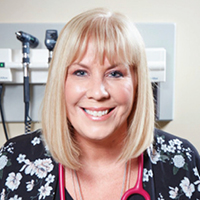I won’t lie. The first week of lockdown felt like a bit of an escape from the usual hectic pace at my clinic. I savoured the peace and quiet, and I got a lot of work done. Everyone else worked from home. I was the only one on-site.
Week two was a little too quiet.
I started playing classical music to drown out the silence while I worked alone. Alone not just in my office, but I was often the only one in the entire healthcare office building.
Our patients are different than other clinics – ours are HIV+ and have compromised immune systems. They messaged constantly, telling me how terrified they were, and so I started sending out newsletters every few days with updates on the virus. The pandemic was stirring up a lot of old trauma issues as many had lived through the AIDS epidemic and had lost many friends. Now, they would have to try to survive this pandemic too.
Week three was a new low.
I felt so alone. It wasn’t fun, and the workload increased. With our friends at Public Health focusing on COVID-19, we felt it was important to ensure that sexual health testing and treatment were available in our community. We quietly put out the word, and the phones started ringing. I developed a simple way to offer testing virtually. I packaged kits with swabs and instructions and put them in a bin outside our door. Patients would call, get triaged, have their requisitions emailed, and stop by to pick up a self swab kit.
We called patients when we got their results. The first time I had a patient in for an STI treatment during the lockdown, I was all alone and frightened. Gloved and gowned, in my mask and shield, I answered the door and let a stranger in. While treating them for syphilis, I held my breath in the room even though I was covered in PPE from head to toe. I worried that seeing these patients would perhaps be how I became infected.
Week four was dark.
I felt like I was at sea in a boat, alone. No one was coming to help with the workload. One of my co-workers was infected with COVID-19. Another was called to work at the hospital in the COVID fight. I was doing the work of three nurses, and it felt as if there was no end in sight.
I worked 60-70 hours per week to keep up. Then the sad news came that we didn’t qualify for pandemic pay. It felt as though our work wasn’t important. I worried night and day about the mental health of our patients. They are already marginalized and isolated, but this was a whole new level of isolation.
I tried to find innovative ways to reach out to the patients. I mailed them masks and sent them videos on how they could stay safe. I made weekly shopping trips to supply our new food hamper project. I mixed and bottled aloe gel and alcohol and sent it to patients to provide them with that added level of protection.
The heaviness of COVID and working alone continued until the day that one of our nurses returned to work, and I wasn’t alone anymore. I missed the hustle and bustle of our very busy clinic, but what I had really missed was human interaction – even if it was in PPE while speaking from opposite ends of the hallway.
I learned many lessons during the first lockdown. I wondered if I would ever feel comfortable bringing a patient into an exam room again without first covering every inch of the space in Cavicide? Will I feel comfortable doing a throat swab without a mask and visor on? Will I feel comfortable when our waiting room is full again? I can only hope so.
About Deanna Clatworthy
Deanna Clatworthy, RPN, BScN, RN, AC, is a nurse, health educator and public speaker who is passionate about equitable, accessible and holistic healthcare for marginalized communities. She served on the Board of Directors for WeRPN for five years and is inspired by the work of this organization. She led the development of the Transgender Healthcare program at ARCH Clinic, where she has worked for nine years. She has currently applied to begin her Masters in Nursing this fall.
